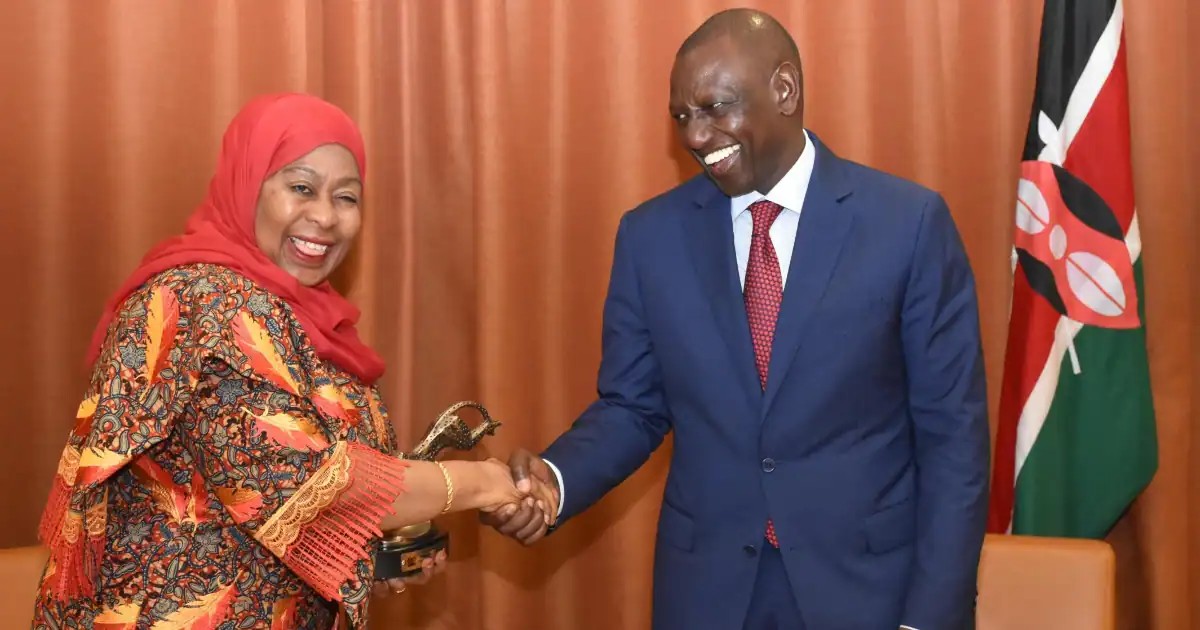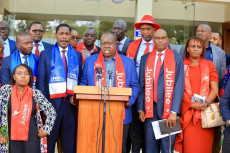- Kenyans must remain alert because when the neighbour’s democracy falters and we applaud it nonetheless, we risk eroding our own.
On October 29, 2025, Tanzania held its presidential election for a nation of roughly 68 million. By official account, President Samia Suluhu Hassan of the ruling Chama cha Mapinduzi (CCM) secured nearly 98% of the vote.
Yet beneath the surface, the picture is more complex. Major opposition parties were excluded from the race, polling stations were vandalised, and protests erupted across several regions.
The credibility of the electoral process has come under intense scrutiny. Tanzania’s main opposition party, Chadema, claims hundreds of people were killed in post-election unrest, while the United Nations has cited reports of at least 10 deaths.
On November 3, President William Ruto publicly congratulated President Suluhu on her victory and urged Tanzanians to embrace dialogue and tolerance. Kenya’s Deputy President Kithure Kindiki attended the swearing-in ceremony in Dodoma.
From a diplomatic standpoint, Ruto’s message may appear as a neighbourly gesture an effort to maintain peace and regional stability. But in substance, it raises difficult questions. By extending congratulations, Kenya risks validating a process many view as flawed and signals support for a government whose legitimacy is contested.
Read More
This moment matters. Kenya is positioning itself as a regional leader and preparing for its own general elections in 2027. Its foreign policy choices reflect not only its diplomatic posture but its democratic values. By endorsing a heavily criticised poll, Kenya may inadvertently signal that legitimacy is negotiable, and that stability can override fairness.
Such a precedent could reverberate beyond Tanzania. It may weaken Kenya’s moral standing in championing democracy, human rights, and political transparency principles that are vital to its own democratic journey.
Still, it is not unreasonable for Kenya to convey goodwill. The two nations share borders, trade ties, and East African integration goals. Diplomacy often requires reaffirming friendly relations, especially in moments of uncertainty. In that sense, Ruto’s message could be read as an effort to preserve regional calm.
But diplomacy must balance gestures with principles. When friendly overtures overshadow democratic concerns, they risk undermining both. Kenya could have chosen a middle path offering congratulations while acknowledging the concerns raised and calling for transparency. That would have signalled respect for Tanzania’s sovereignty and for democratic norms.
Kenyans must remain vigilant. When a neighbour’s democracy falters and we applaud it nonetheless, we risk eroding our own. And when regional standards are lowered, the only beneficiaries are those who seek to preserve power rather than enable change.
The ballots may be cast, but legitimacy is earned not declared. Kenya’s foreign policy should reflect that truth.
Stay connected with us on WhatsApp and X for instant updates and breaking news as it happens.








